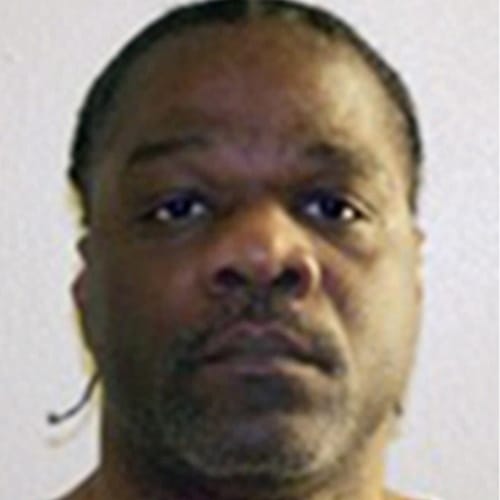Four years after the state of Arkansas executed a Death Row inmate, another man’s DNA has been found on the murder weapon used to convict him. Ledell Lee insisted he was innocent for the 22 years he was behind bars for the 1993 murder of 26-year-old Debra Reese in Jacksonville. In fact, some of his last words continued to maintain that stance, with Lee telling BBC News the day before his death: “My dying words will always be, as it has been, ‘I am an innocent man.'” Now, four years later, proof may be coming to light that Lee was telling the truth.
- DNA testing quickly uncovered the mysterious sample. Lawyers affiliated with the Innocence Project and the American Civil Liberties Union say that DNA testing found other genetic material on the murder weapon that belonged to a man who is not Lee. The weapon was never previously tested despite the fact that Lee a man’s life was in the balance and ultimately lost.
- Authorities are seeking the man matching the new DNA profile. The sample was uploaded to the national criminal database in the hopes of finding a person from whom the sample came. However, making a match is dependent on the owner of that DNA having been previously arrested or convicted of a crime so that a DNA sample is present in the system.
- Lee’s sister has been fighting for her brother’s cause for years. Patricia Young has always maintained her brother’s innocence and released a statement upon hearing the bittersweet development. “We are glad there is new evidence in the national DNA database and remain hopeful that there will be further information uncovered in the future,” she said, as per the New York Times. The weapon was only released for testing after Young filed a lawsuit in January. The items released included a bloody wooden club found in the victim’s bedroom, a bloody white t-shirt wrapped around the bat, and other key pieces of evidence.
- Lee’s execution was the first in over 10 years. When Lee was executed on April 20, 2017, the state of Arkansas faced backlash from critics who accused authorities of rushing executions to avoid having lethal injection drugs pass their expiration date. However, Governor Asa Hutchinson defended the execution in a news conference held on Tuesday, saying, “It’s my duty to carry out the law” and that “the fact is that the jury found him guilty based upon the information that they had.” He claimed that the new DNA evidence is “inconclusive.”
- The DNA evidence is conclusive of one thing: it wasn’t Lee’s. “While the results obtained 29 years after the evidence was collected proved to be incomplete and partial, it is notable that there are now new DNA profiles that were not available during the trial or post-conviction proceedings in Mr. Lee’s case,” said Nina Morrison, senior litigation counsel at the Innocence Project, The Washington Post reported on Tuesday. Here’s hoping they’re able to find the real perpetrator of the crime, though it’s sadly too late for Lee’s life to be restored.



